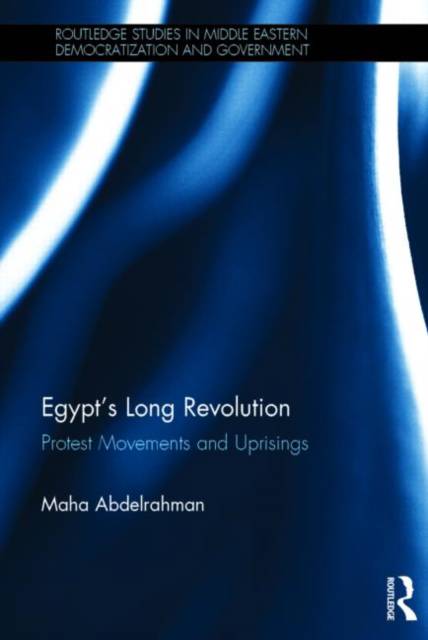
- Afhalen na 1 uur in een winkel met voorraad
- Gratis thuislevering in België vanaf € 30
- Ruim aanbod met 7 miljoen producten
- Afhalen na 1 uur in een winkel met voorraad
- Gratis thuislevering in België vanaf € 30
- Ruim aanbod met 7 miljoen producten
Omschrijving
The millions of Egyptians who returned to the heart of Cairo and Egypt's other major cities for 18 days until the eventual toppling of the Mubarak regime were orderly without an organisation, inspired without a leader, and single-minded without one guiding political ideology. This book examines the decade long of protest movements which created the context for the January 2011 mass uprising. It tells the story of Egypt's long revolutionary process by exploring its genealogy in the decade before 25 January 2011 and tracing its development in the three years that have followed.
The book analyses new forms of political mobilisation that arose in response to ever-increasing grievances against authoritarian politics, deteriorating living conditions for the majority of Egyptians as a consequence of neo-liberal policies and the machinery of crony capitalism, and an almost total abandoning by the state of its responsibilities to society at large. It argues that the increasing societal pressures from different quarters such as labour groups, pro-democracy movements and ordinary citizens during this period culminated in an intensifying culture of protest and activism that was vital in the lead up to the dramatic overthrow of Mubarak. It, also, argues that the features of these new forms of activism and political mobilisation have contributed to shaping the political process since the downfall of Mubarak.
Based on research undertaken since 2002, Egypt's Long Revolution is an essential resource for scholars and researchers with an interest in social movements, comparative politics and Middle East Politics in general.
Specificaties
Betrokkenen
- Auteur(s):
- Uitgeverij:
Inhoud
- Aantal bladzijden:
- 170
- Taal:
- Engels
- Reeks:
Eigenschappen
- Productcode (EAN):
- 9780415633048
- Verschijningsdatum:
- 5/08/2014
- Uitvoering:
- Hardcover
- Formaat:
- Genaaid
- Afmetingen:
- 163 mm x 236 mm
- Gewicht:
- 399 g

Alleen bij Standaard Boekhandel
Beoordelingen
We publiceren alleen reviews die voldoen aan de voorwaarden voor reviews. Bekijk onze voorwaarden voor reviews.







